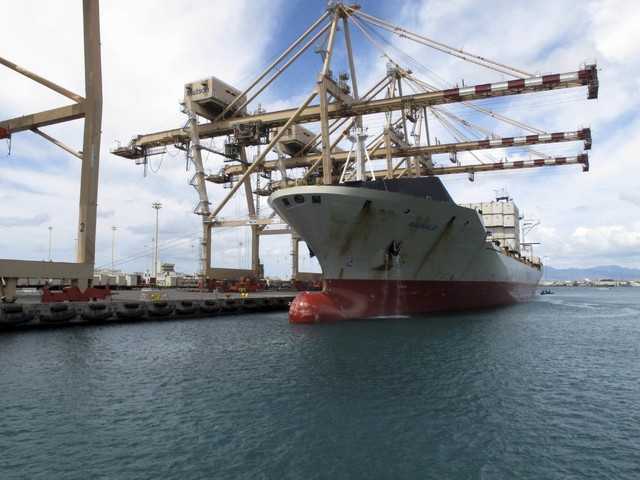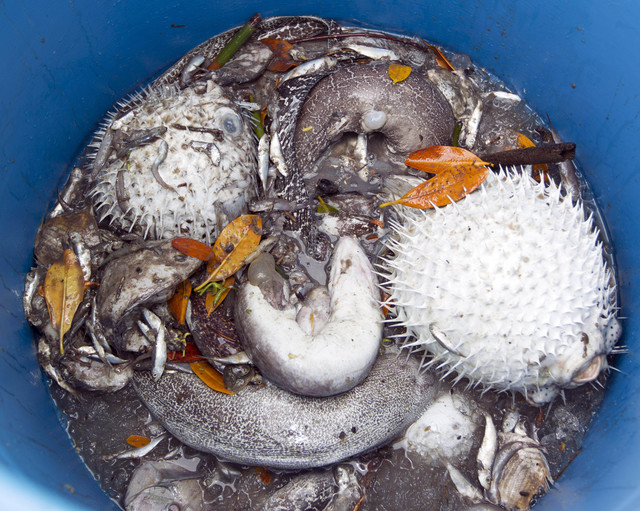HONOLULU — The Environmental Protection Agency is reviewing a $15.4 million settlement between Hawaii and a shipping company that spilled 1,400 tons of molasses into Honolulu Harbor to see how it may affect the agency’s investigation. ADVERTISING HONOLULU — The
HONOLULU — The Environmental Protection Agency is reviewing a $15.4 million settlement between Hawaii and a shipping company that spilled 1,400 tons of molasses into Honolulu Harbor to see how it may affect the agency’s investigation.
The EPA’s probe into whether Matson Inc. violated the Clean Water Act during the 2013 spill was still ongoing when Hawaii’s attorney general announced the settlement Wednesday.
“We were looking, doing the due diligence, doing an ongoing investigation, and then this broke,” Dean Higuchi, EPA spokesman for Hawaii, said Thursday. The EPA investigation was being conducted jointly with the state Department of Health, he said.
The settlement resolved claims by the state Department of Health against Matson, but “it did not preclude DOH from cooperating or assisting with EPA in the latter’s ongoing investigation,” Chin said.
Under the settlement, Honolulu-based Matson will end its molasses operation in Hawaii. Moving molasses from a Maui sugar company to Honolulu, and then shipping it to the mainland, is a remnant from the days when Hawaii had many sugar plantations, company spokesman Jeff Hull said.
“It was a legacy operation,” he said. “It was never a big profit center for us.”
The settlement includes the costs of ending Matson’s molasses operation and a $5.9 million cash payment to the state. That money will pay to regrow coral that were damaged or destroyed, and reimburse cleanup costs and other expenses.
Matson estimates removing the molasses tanks and the leftover molasses will cost $5.5 million to $9.5 million. Attorney General Doug Chin criticized that range, saying it’s an attempt to downplay the financial loss to investors.
“The state will make sure that Matson spares no costs and cuts no corners,” Chin said.
The spill killed more than 26,000 fish and other marine life. The molasses oozed from a section of pipe that Matson thought had been sealed. The sticky molasses suffocated marine life and discolored the water as it sank to the bottom of the harbor.
The spill, in an industrial area about 5 miles west of Waikiki’s hotels and beaches, shut down much of Honolulu Harbor for nearly two weeks.
Matson released a report Wednesday on the spill, which cites a 2012 state-commissioned survey of aquatic life in the harbor.
“The results show that corals, fish and benthic organisms in Honolulu Harbor prior to the incident were living in a highly stressed commercial environment with high sedimentation, low water quality and other conditions unfavorable to the growth of long-term success of marine life,” the Matson report said.
Reaching a settlement avoids a lawsuit that would have taken years to resolve, Chin said.
Matson executives said previously that they weren’t prepared for the possibility of a spill, despite transporting molasses from the pipeline for about 30 years.
“Matson has been a member of the community for more than a hundred years, and the company’s leadership understands the damage the molasses leak caused,” Gov. David Ige said in a statement.
Earlier this year, Matson Terminals Inc. pleaded guilty to federal criminal charges for illegally releasing the molasses into the harbor. As part of a plea deal, Matson agreed to pay fines and restitution totaling $1 million, including $600,000 that went to the Waikiki Aquarium and Sustainable Coastlines Hawaii.




